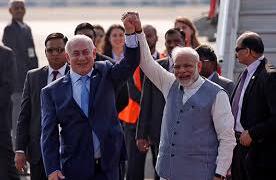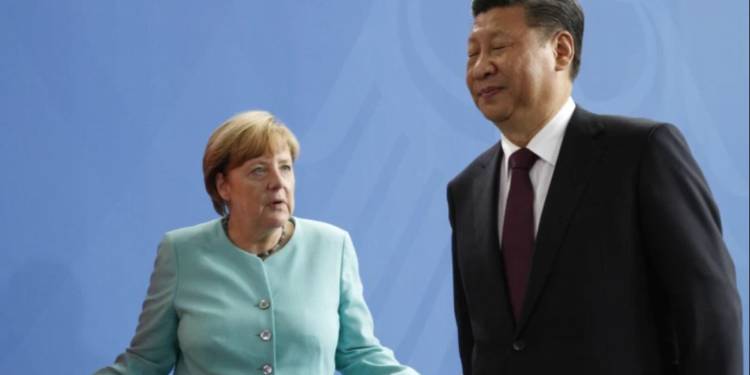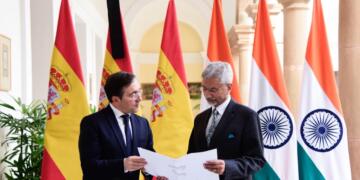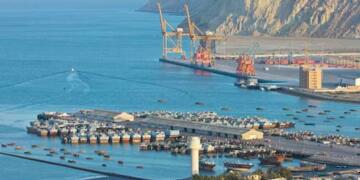The Wuhan coronavirus pandemic has forever changed the geopolitical equations as even the traditional allies of China are now shifting their allegiances. However, Germany’s sudden shift will hurt China the most as Angela Merkel led Germany stood and defended China during the peak of the pandemic. It seems that Merkel has smelled the coffee and is now taking an anti-China stance which has made China act like a jilted lover as it has resorted to writing painful article on how Germany backstabbed China in its propaganda mouthpiece Global Times.
There was a time when Europe, especially Western Europe used to enjoy the world’s undivided attention as the US urged Europe to jointly take on Russia. The pandemic has changed all the geopolitical equations with China assuming the role of enemy which must be defeated at all costs. At a time when the US looks at India, Japan and Australia to jointly take on China, Germany is not ready to miss the bus and wants to safeguard its trade routes and thus has rolled out an India-centric Indo-Pacific strategy, which has irked China who is now crying crocodile tears.
China has deployed Global Times to warn Germany in its propaganda piece titled, “Influencing Indo-Pacific region difficult for Europe”.
The article stated how the word Indo-Pacific
is not value-neutral as it claimed, “”Indo-Pacific” is a not a simple political term, nor is it value-neutral, as an SWP research paper published in July pointed out. Invented by the Trump administration, this term implies one of the geopolitical focal points of the intensifying US-China strategic rivalry. Within this context, Germany’s latest policy guidelines reveal its recognition of the US strategic orientation toward the Asia-Pacific region, and even herald a US-Germany convergence in the future of their attitudes and overall policy lines in handling issues in this region.”
The article then elucidated about how the Trump led US is acting in an unilateral manner and how the nation does not pay heed to the security demands of Europe and Germany. Global Times also fabricated an imaginary trade war between US and Europe.
The article warned Germany to be cautious as it read, “Faced with a unilateralist US and an unpredictable Trump administration, Europe and Germany have to act in a more cautious way. They deliberately avoid taking sides with the US on some issues that may harm Europe’s relations with other big powers.”
For the uninitiated, recently, the German Foreign Ministry released an India-centric Indo-Pacific strategy which contains several indirect references to the Dragon’s hawkish behaviour in the Indo-Pacific that threaten to challenge the present rules-based world order. It also seeks to enhance engagement with New Delhi in the strategically significant Indo-Pacific.
Berlin’s Indo-Pacific strategy has to be the most severe diplomatic shock that Beijing has suffered until now. The strategy released by the German Foreign Ministry goes on to suggest opening a dialogue with institutions in which New Delhi plays a key role, including the Bay of Bengal Initiative for Multi-Sectoral Technical and Economic Cooperation (BIMSTEC) and Indian Ocean Rim Association for Regional Cooperation that consists of 22 countries bordering the Indian Ocean – New Delhi’s natural sphere of influence.
The German Foreign Ministry has itself stated, “As an internationally active trading nation and proponent of a rules-based international order, Germany – embedded in the European Union – has a great interest in participating in Asia’s growth dynamics and in being involved in shaping the Indo-Pacific region, as well as in upholding global norms in regional structures.”
The recent developments have certainly shook China as Global Times makes a last ditch attempt of winning Germany back as it issued a passionate plea claiming that, “Due to the lack of both hard power and a will to intervene forcefully in the Indo-Pacific region, Germany may only offer symbolic support to the US. It may be safe to point out that, when Germany talks of this region, what is in its mind is business than strategic security. Germany hopes to obtain more economic benefits under the security umbrella of the US. Its involvement in the Indo-Pacific region is more out of consideration for diversity and expanding its investment and trade.”
In an interesting claim, China appears to give up on Europe and Germany altogether as it claimed that Germany may hope to see some of its investments moved from China to India. The article stated, “As European businesses and politicians talk of the necessity to diminish Europe’s “value chain dependency” on China, and discussions have been conducted in the European Union and its member states, it is likely that Germany may hope to see some of its investments and businesses moved from China to India, or some Southeast Asian country. Changes are emerging on the horizon, and China-Europe relations may never be the same.”
Make no mistake, with this article, China has accepted its defeat as it laments the backstabbing of Germany and the loss of European Union as a trusted ally.



























